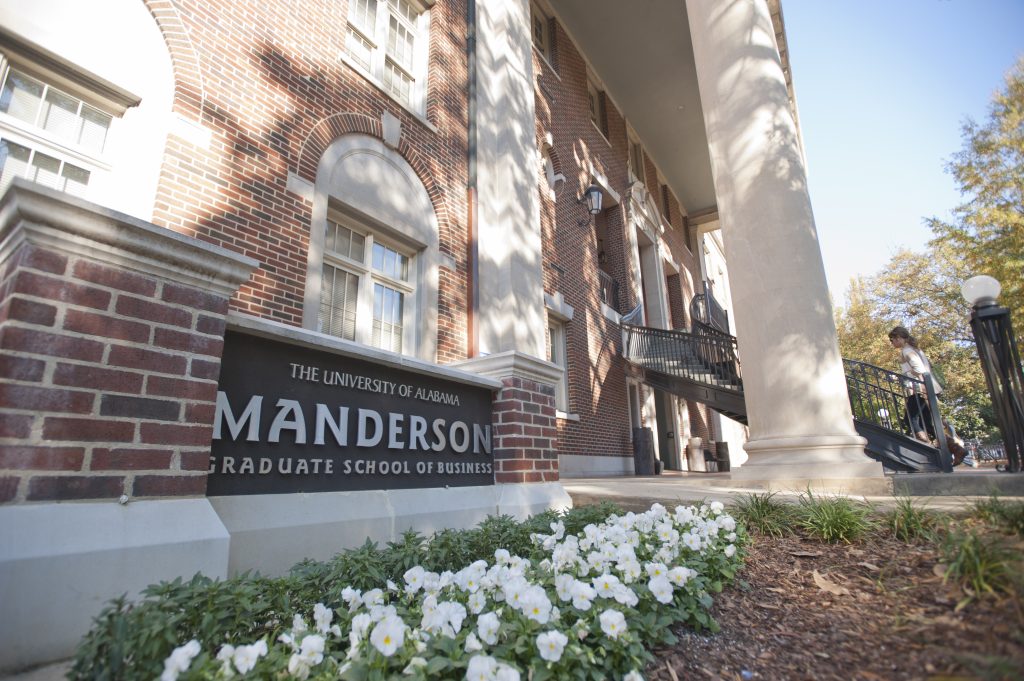The PhD program in Applied Statistics is a research-intensive program designed for students who demand an in-depth understanding of statistical tools for solving real-world problems with innovation. The knowledge and skills that students learn prepare them to become professionals in a broad range of data-driven fields, including university professors and research statisticians in industry, government, and non-profit sectors.
The Applied Statistics professors support students interested in a diverse range of statistical topics including linear models, data mining and analytics, statistical process control, spatial statistics, longitudinal analysis, statistical computing, nonparametric and robust methods, change and anomaly detection, Bayesian inference, network analysis, and statistical learning.

Students are expected to finish the PhD program in four years. They are required to take at least 48 credit hours of approved coursework and at least 24 dissertation hours. During the summer months, students are expected to enhance their research skills under the supervision of their academic advisors. Subject to evaluation by the PhD program Director, some coursework (but no more than 24 credit hours) may be transferred from previous graduate programs.
Required Course | Course Title | Hours |
ST 552 | Applied Regression Analysis | 3 |
ST 553 | Applied Multivariate Analysis | 3 |
ST 554 | Mathematical Statistics I | 3 |
ST 555 | Mathematical Statistics II | 3 |
ST 560 | Statistical Methods | 3 |
Course | Course Title | Hours |
ST 521 | Statistical Data Management | 3 |
ST 522 | Advanced Statistical Data Management | 3 |
ST 531 | Knowledge Discovery & Data Mining I | 3 |
ST 532 | Advanced Data Mining II | 3 |
ST 540 | Statistical Programming and Computing with R | 3 |
ST 545 | Statistical Learning | 3 |
ST 561 | Applied Design of Experiments | 3 |
ST 570 | Time Series Analysis | 3 |
ST 575 | Statistical Quality Control | 3 |
Required Course | Course Title | Hours |
ST 603 | Advanced Statistical Inference | 3 |
ST 610 | Advanced Linear Models | 3 |
ST 640 | Statistical Computing | 3 |
ST 645 | Advanced Statistical Learning | 3 |
Course | Course Title | Hours |
ST 615 | Theory of Regression and Generalized Linear Models | 3 |
ST 635 | Nonparametric Statistics | 3 |
ST 697 | Bayesian Inference | 3 |
ST 697 | Advanced Design of Experiments | 3 |
ST 697 | Advanced Multivariate Analysis | 3 |
ST 697 | Current Research Topics | 3 |
All students, both international and domestic, with relevant preparation in calculus, linear algebra, probability, and statistics are welcome to apply. Prospective students without an MS degree in statistics or without proper preparation at a similar level are encouraged to apply to our Master of Science program. A complete application package must be submitted at the graduate school and should include the following items:
GRE Exam Requirement:
Students may choose to take either GRE or GMAT. Students are expected to achieve an overall GRE score of at least 310, including at least 160 on the quantitative reasoning section.
TOEFL Exam Requirement:
All students whose first language is not English must submit an official TOEFL (Test of English as a Foreign Language) or IELTS score. The minimum required iBT TOEFL score is 90 (575 in paper-based TOEFL). The language requirement may be waived for students with a two-year US-based degree.
We prefer that students enter the program in the fall semester. In some special situations, students can be allowed to enter the program in the spring semester. Application materials for consideration for fall enrollment with financial support must be received by January 15. Applications without requests for financial assistance must be submitted by March 15. Application materials for consideration for spring enrollment with financial support must be received by October 1. Applications without requests for financial assistance must be submitted by November 1.
At the end of the first academic year, PhD students are required to take a written qualifying examination. The exam is usually administered at the end of a spring semester and is based on the required MS level courses including ST 552, 553, 554, 555, and 560. The qualifying exam requirement may be waived for students holding an MS degree in statistics. Students interested in waiving the exam must take an entrance exam in August before the start of the fall semester. The entrance exam represents a light version of the comprehensive exam that is based on major and fundamental concepts covered in the required MS level courses. Students passing the entrance exam are allowed to register for PhD-level courses. Students failing the entrance exam are expected to register for MS level courses in which knowledge and skill deficiencies have been identified.
At the end of the second year or upon the completion of at least four (12 credit hours) PhD level statistics classes, students must take a comprehensive exam. The goal of the comprehensive exam is to assess the potential of a student to conduct independent research. Individual research projects are assigned to students for independent work over a two-week period in April. By the end of the two-week term, students must submit a written report and present their findings at an Applied Statistics Ph.D. seminar. Applied Statistics graduate faculty assess the quality of completed projects based on the following rubrics:
By the time of the comprehensive exam at the latest, students are expected to find a dissertation advisor.
Every year, PhD students meet with Applied Statistics faculty to discuss their academic performance and progress in the program
Students who fail to meet the program requirements such as maintaining at least a 3.50 GPA, passing the qualifying exam, comprehensive exam, proposal, and dissertation defenses, or finding a dissertation advisor and forming a dissertation committee will be required to resolve all academic issues during the next semester. The failure to do so over the next semester leads to the immediate dismissal from the PhD program. The disruption of financial support can be recommended if GPA falls below 3.50 but is higher than 3.00. The financial support can be resumed when GPA becomes at least 3.50 again.
Within a year after passing the comprehensive exam, students must form a dissertation committee and present and defend their dissertation proposal. The proposal usually focuses on the already obtained findings and plans regarding research yet to be accomplished.
The dissertation defense is the final test that usually occurs at the end of the fourth year. A dissertation must present some original contributions to the statistics literature. A PhD candidate must present a written document acceptable to the dissertation committee and Graduate School and pass the oral dissertation defense.
mbperry@ua.edu
(205) 348-9864
Alston 350
General questions about the application process?
Are you ready to gain the Manderson Advantage?

This website uses cookies to collect information to improve your browsing experience. Please review our Privacy Statement for more information.